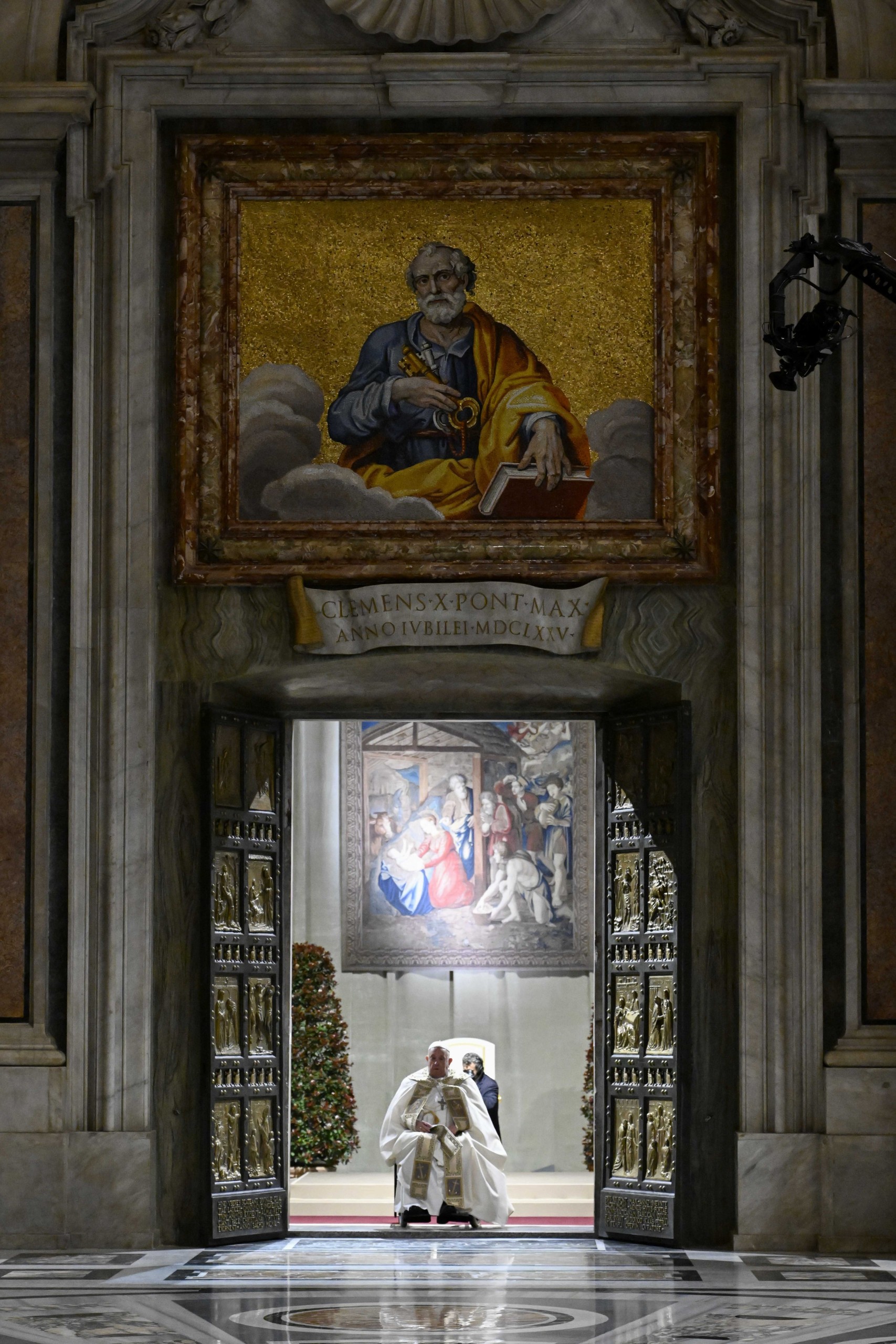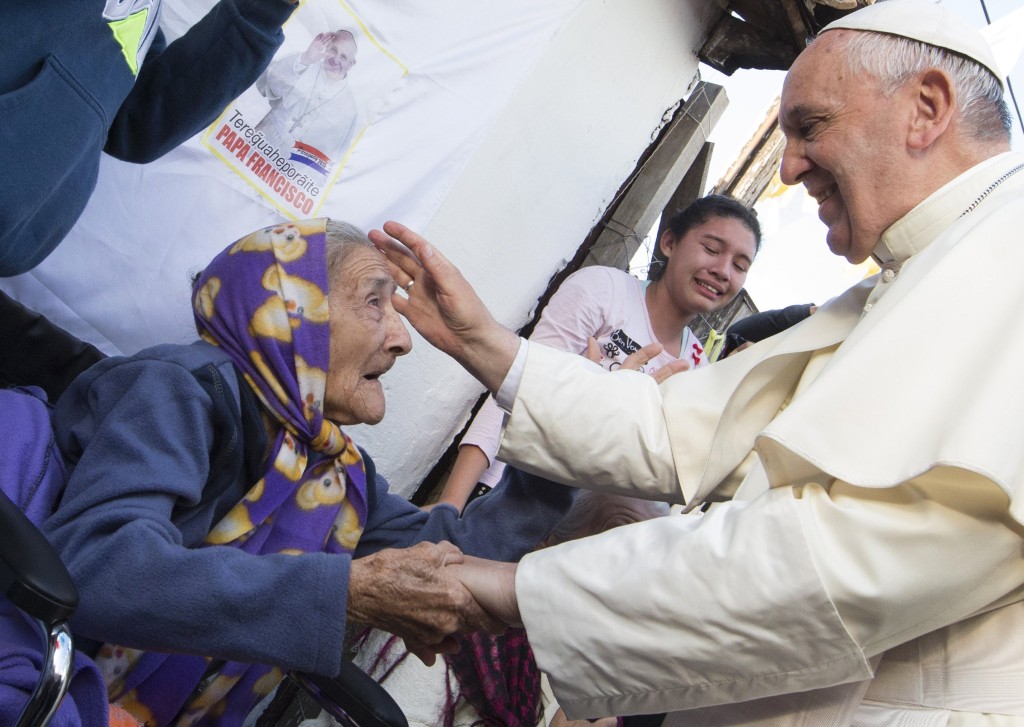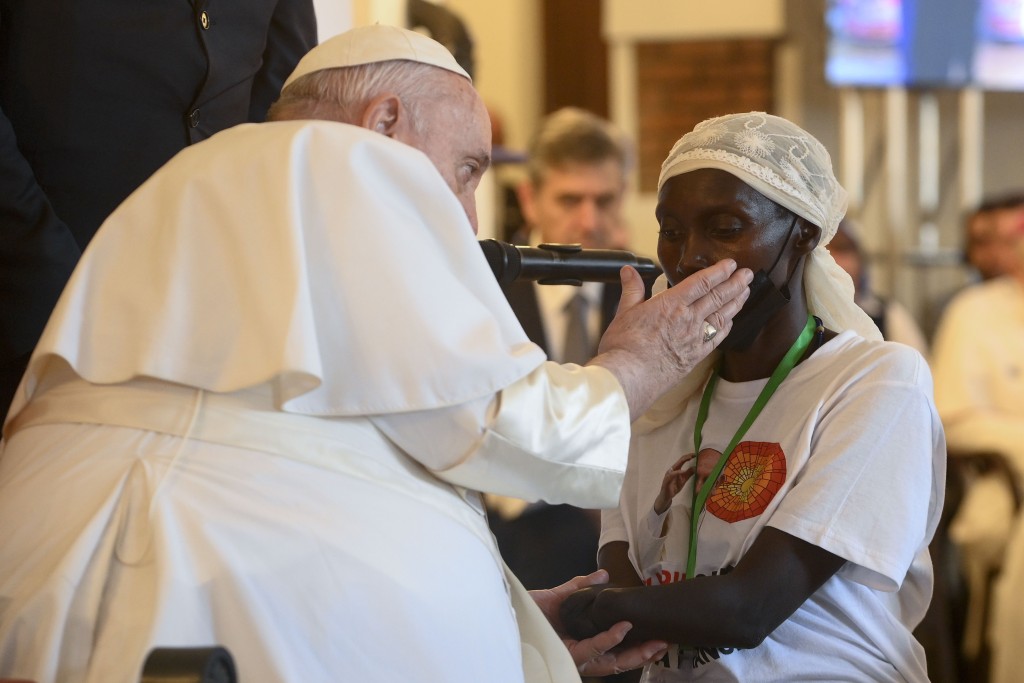
On Easter Monday, April 21, 2025, Pope Francis passed away at the age of 88, just hours after imparting the Easter Urbi et Orbi blessing. His death, coming at the close of the holiest days in the Christian calendar, felt profoundly symbolic for a man who spent his papacy proclaiming the joy and hope of the Gospel to the world’s most forgotten corners.
“Sisters and brothers, especially those of you experiencing pain and sorrow, your silent cry has been heard and your tears have been counted; not one of them has been lost!” were the words of Pope Francis in his last blessing to the people of Rome and to the world.
Born Jorge Mario Bergoglio in Buenos Aires, Argentina, on December 17, 1936, the first pope from Latin America—and the first Jesuit pope—leaves behind a legacy shaped by humility, courage, and a deep commitment to the Church’s missionary vocation. Elected to the papacy on March 13, 2013, Francis spent the next twelve years urging Catholics to go out, not stay in; to build bridges, not walls; to proclaim the Gospel not from ivory towers, but from the muddy crossroads of human suffering and hope.
“Mission,” he once said, “is a passion for Jesus and at the same time a passion for his people.” It was this dual passion that animated his every step.
A Pope from the Periphery
When he first stepped out onto the loggia of St. Peter’s Basilica and greeted the world as a “bishop from the end of the earth,” few outside Argentina knew who he was. But it didn’t take long for Pope Francis to make an indelible impression.
He rejected the papal palace in favor of a modest guesthouse. He carried his own bag. He chose the name Francis in honor of the poverello of Assisi, signaling from day one that his papacy would be one of simplicity, solidarity, and reform.
And he traveled—not to the traditional centers of power, but to the outskirts of the global map and the edges of the human heart. His first trip outside Rome was to the Italian island of Lampedusa, where he mourned the deaths of migrants lost at sea and condemned the “globalization of indifference.”
From that moment forward, Pope Francis’ passport filled with stamps from countries where popes had never ventured before—Iraq, South Sudan, the United Arab Emirates, Mongolia, Papua New Guinea. He turned the eyes of the world to places often overlooked, reminding us that Christ is most present where suffering is greatest.
Evangelii Gaudium and the Heart of Mission
One of the most enduring documents of his papacy was Evangelii Gaudium (The Joy of the Gospel), released just months after his election. It was a blueprint for a missionary Church—bold, joyful, and always on the move.
“The Church which ‘goes forth’ is a community of missionary disciples,” he wrote. “Mere administration can no longer be enough. Throughout the world, let us be permanently in a state of mission” (EG, 24–25).
In that single exhortation, he redefined what it means to be Catholic in the modern world—not passive recipients of the faith, but joyful evangelizers. Not institutional caretakers, but missionary disciples. That vision would inspire the Church’s evangelizing efforts for years to come, including the work of The Pontifical Mission Societies in more than 1,100 mission territories around the world.

Pope Francis greets an elderly woman as he meets with people of the Banado Norte neighborhood in the Chapel of St. John the Baptist in Asuncion, Paraguay, July 12, 2015. Pope Francis, formerly Argentine Cardinal Jorge Mario Bergoglio, died April 21, 2025, at age 88. (CNS photo/Paul Haring)
A Champion for the Marginalized
Francis’ missionary zeal was inseparable from his deep concern for the poor. “The worst discrimination which the poor suffer,” he wrote, “is the lack of spiritual care” (EG, 200). In every visit, in every speech, he insisted that the Gospel is good news for the poor—not just in theory, but in lived, material solidarity.
In the Central African Republic, he opened the first Holy Door of the Jubilee Year of Mercy—outside of Rome. In the slums of Nairobi, he condemned corruption and economic injustice. In Qaraqosh, Iraq, he knelt before Christian survivors of ISIS violence. Time and again, he reminded the world that the Church does not run from suffering; it runs toward it.
Dialogue, Peace, and the Work of Reconciliation
Pope Francis will be remembered as a man of peace and dialogue. He brought together Israeli and Palestinian leaders to pray in the Vatican Gardens. He signed the Document on Human Fraternity with the Grand Imam of Al-Azhar in Abu Dhabi. He became the first pope to step foot in the Arabian Peninsula, Iraq, and Bahrain.
These weren’t political gestures—they were acts of faith. He believed that dialogue was not just diplomacy, but a form of evangelization, rooted in the Gospel’s call to love and listen.
A Papacy Marked by Firsts—and by Mercy
Francis was the first pope from the Southern Hemisphere, the first Jesuit pope, the first to take the name Francis. But what defined his pontificate was not novelty, but mercy.
He launched a Holy Year of Mercy in 2015. He established World Day of the Poor. He encouraged confession, outreach, accompaniment. “The name of God is mercy,” he declared—both in writing and in action.
Even in moments of crisis—like the COVID-19 pandemic—he became a global shepherd, offering comfort to a grieving world from the rain-soaked emptiness of St. Peter’s Square.
His Final Easter
That Pope Francis died on Easter Monday—the day when Christians remember the Risen Christ appearing to his disciples—is both fitting and deeply moving. He was, until the end, a preacher of hope.
In his last years, increasingly frail and reliant on a wheelchair, he did not stop. He continued to write, to travel, to preach. In his final public homilies, he urged Catholics to never lose the missionary spirit. “The joy of the Gospel fills the hearts and lives of all who encounter Jesus,” he said in his first exhortation. And until his last breath, he remained a witness to that joy.

Pope Francis caresses the cheek of a woman whose hand was amputated in the violence that continues to plague the eastern part of Congo. The pope met victims of violence Feb. 1, 2023, at the apostolic nunciature in Kinshasa. Pope Francis, formerly Argentine Cardinal Jorge Mario Bergoglio, died April 21, 2025, at age 88. (CNS photo/Vatican Media)
A Legacy That Lives On
Pope Francis leaves behind a Church transformed—not without tension or criticism, but renewed in its missionary identity. He reminded us that the Gospel is not a museum piece, but a living word meant to be shared.
At The Pontifical Mission Societies, we give thanks for a Holy Father who believed in our work, who spoke passionately about the missions, and who taught us that mission begins with encounter—with Christ, and with the poor.
He once said, “I prefer a Church which is bruised, hurting and dirty because it has been out on the streets, rather than a Church which is unhealthy from being confined.” In Pope Francis, we saw exactly that kind of Church—a Church that walks, that listens, that heals.
May he rest in the peace of the Risen Lord whom he served so faithfully. And may the last words he wrote for the world to hear, guide us in these days: “In the Lord’s Paschal Mystery, death and life contended in a stupendous struggle, but the Lord now lives forever (cf. Easter Sequence). He fills us with the certainty that we too are called to share in the life that knows no end, when the clash of arms and the rumble of death will be heard no more. Let us entrust ourselves to him, for he alone can make all things new (cf. Rev. 21:5)!”


